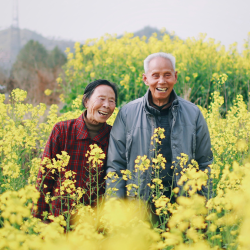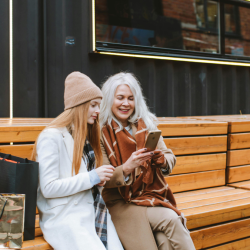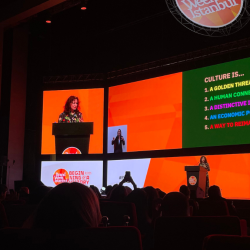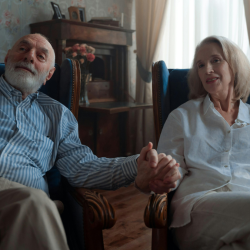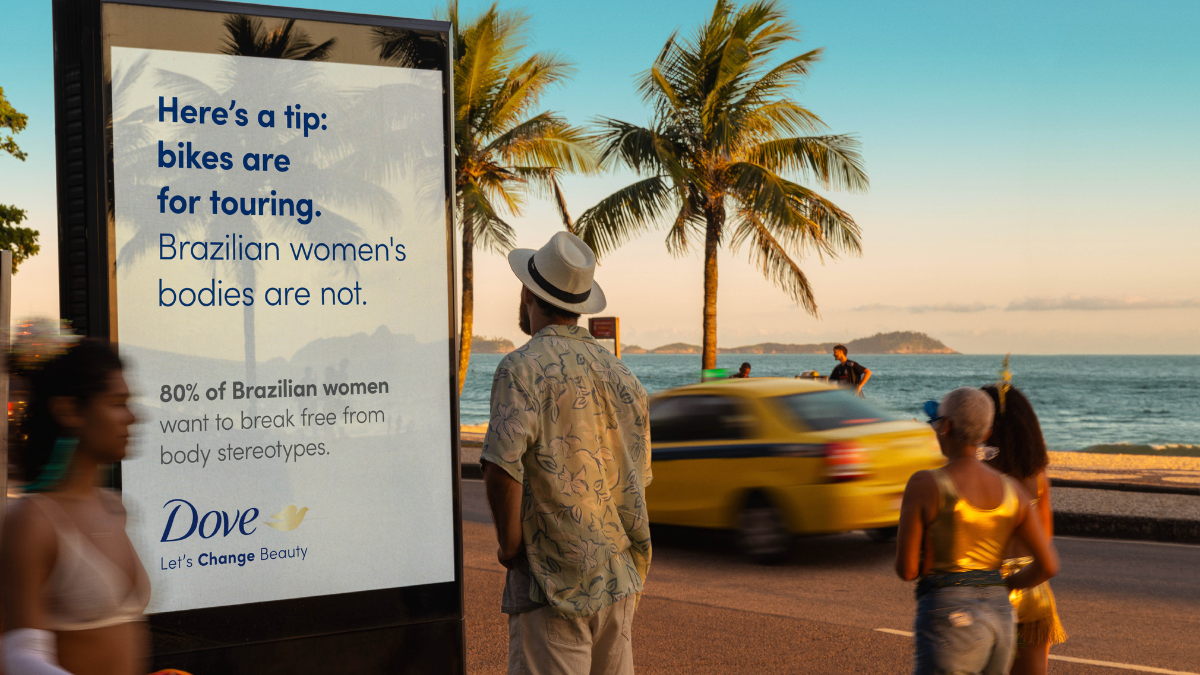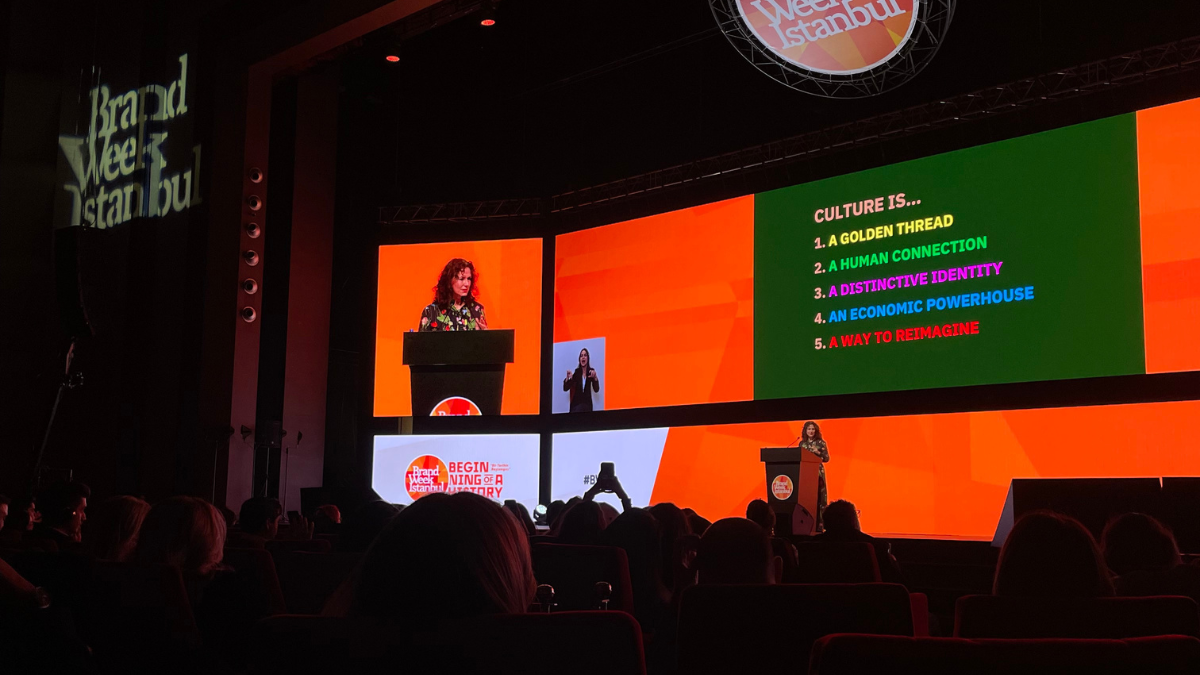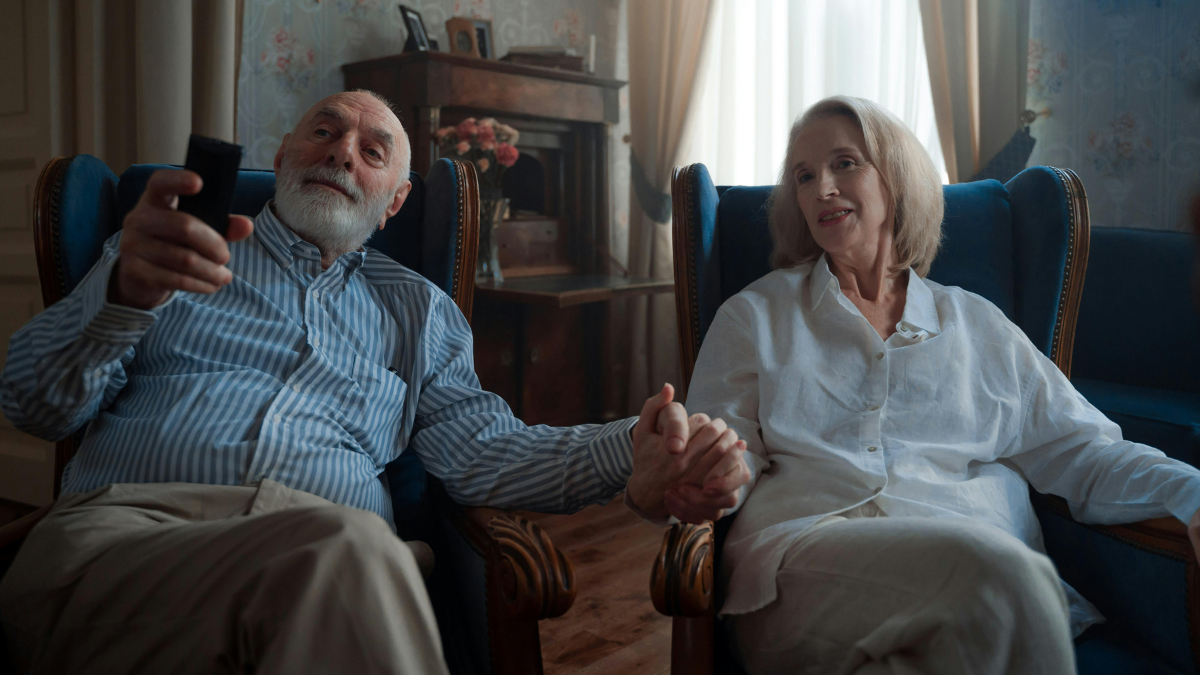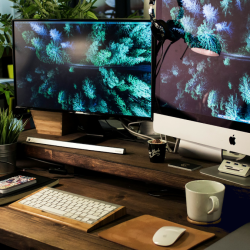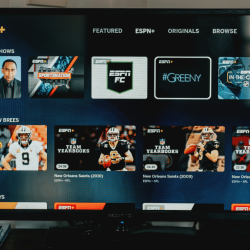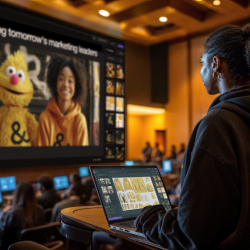According to a survey by Dove, 80% of Brazilian women feel uncomfortable and disrespected by stereotypes about their bodies perpetuated by people worldwide.
In support of combating this reality, the brand has launched the #RealBrazilianWomen campaign, which aims to broaden the debate, raise awareness, and spark reflection on how Brazilian women’s bodies are perceived and sexualised, especially by foreign tourists.
The campaign begins during Carnival, starting Saturday 10 February until Wednesday 14 February, chosen by Dove as the season when Brazil receives the most tourists.
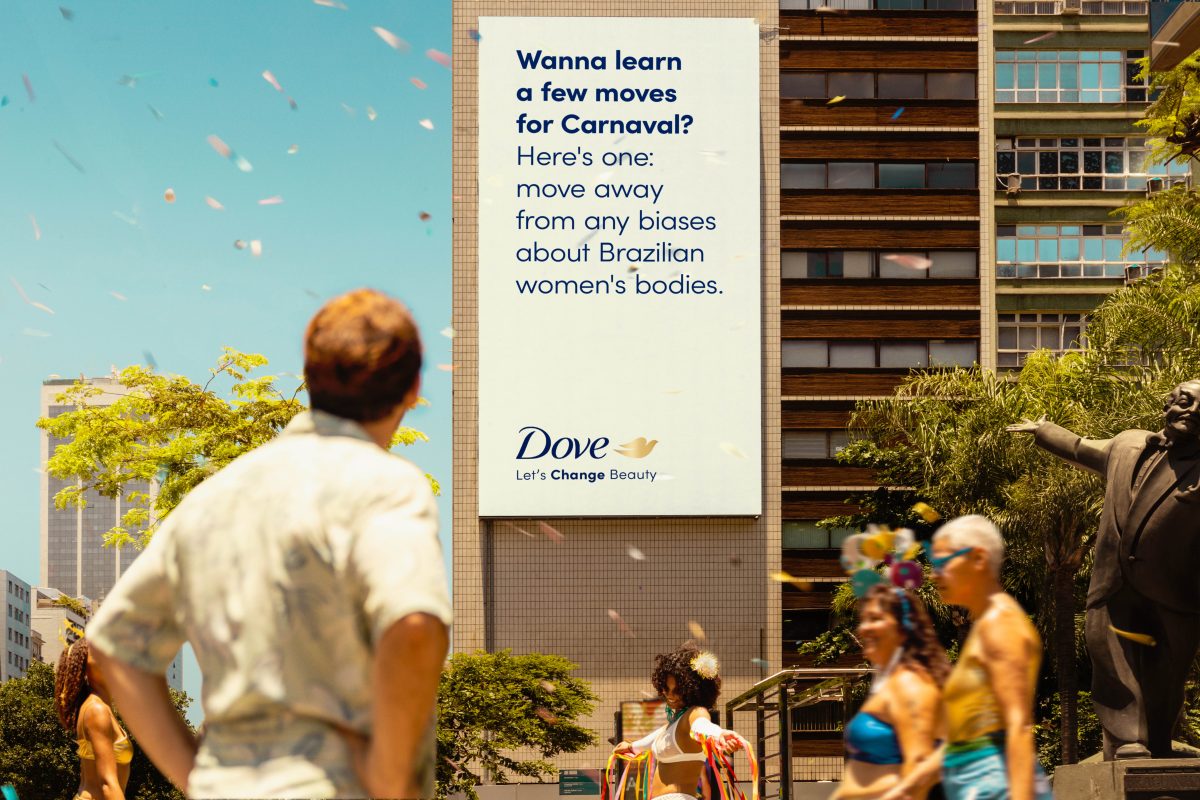
Created by SOKO, Dove’s creative agency in Brazil, the initiative makes questions and provocations on billboards, airports and strategic points in the city of Rio de Janeiro in different languages, such as Spanish and English.
Andreza Graner, Marketing Director of Dove in Brazil said the data from the survey aligns with what Dove has been aiming to combat for decades. ‘It is known that the stereotype of the Brazilian body is one considered ‘standard,’ and that this, in addition to affecting our self-esteem, results in the hyper-sexualization of Brazilian women worldwide,’ she said.
‘Our goal with the campaign is to propose a provocation for reflection on this objectification, especially in the summer and Carnival, as it is a time when women’s bodies are most exposed to societal pressures. This is how Dove seeks to contribute to the construction of a world where beauty ceases to be a source of anxiety and becomes an endless source of happiness and confidence.’
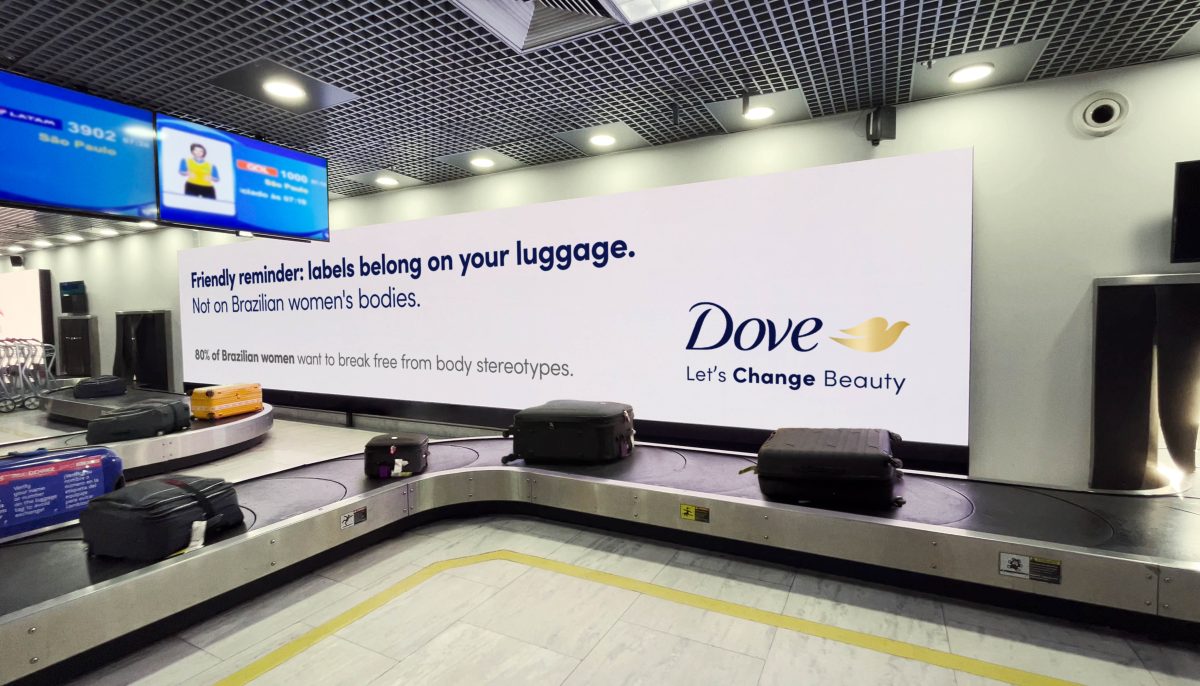
Facing the stereotype that ‘the Brazilian woman has a body considered standard,’ the survey also points out data among Brazilian women who usually wear bikinis when frequenting beaches and pools, with 82% agreeing that ‘this image does not represent the various types of bodies of Brazilian women and the various types of bikinis they wear.’ Additionally, 61% agree that ‘this image of the Brazilian woman imposes a standard of beauty that is unrealistic for me; it does not correspond to my body type.’
‘We have significant data that 80% of Brazilian women wish to break free from the stereotype that reduces us to a limited vision—and when we talk about the objectification of our bodies, we also talk about self-esteem. Dove directing the main message of its campaign to those who replicate this view is a way to question the root of the issue without blaming women for a problem they are not responsible for,’ says Andy Dutra, Creative Leader at SOKO.
Featured image: #RealBrazilianWomen campaign by Dove
